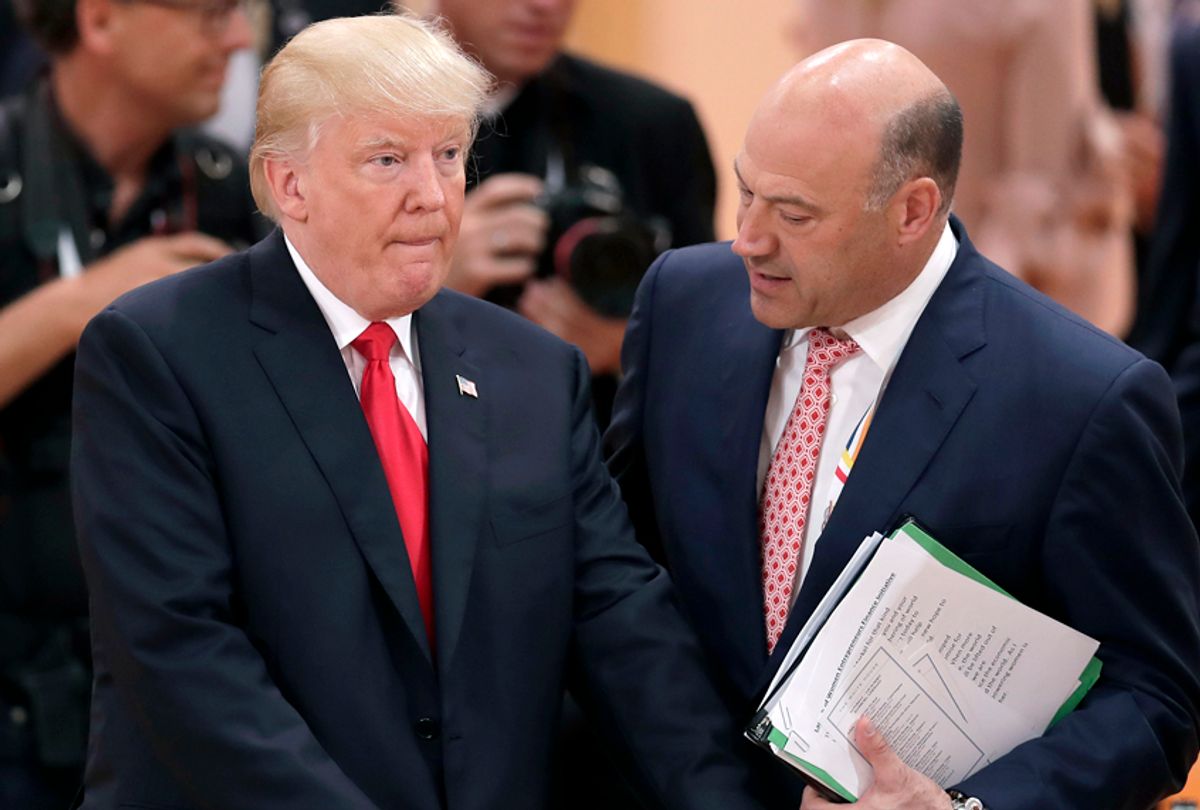When President Donald Trump's Chief Economic Adviser Gary Cohn announced his resignation from the White House on Tuesday, he was quickly branded as a "globalist" by some, including the president himself.
The term has ignited a debate over its possible use as an anti-Semitic slur, because it's a word frequently used by members of the "alt-right."
Most notably, the word was used by Trump, who said, "He may be a globalist, but I still like him," according to Politico.
The comments came on Thursday during a partly televised Cabinet meeting, which was Cohn's last.
"He is seriously a globalist. There's no question. In his own way, but you know what, he's a nationalist. He loves our country," Trump added, of Cohn, who is Jewish.
During Wednesday's press briefing, the word also came up casually in a question to White House Press Secretary Sarah Huckabee Sanders.
"He was a noted free trader, a globalist," said Fox News reporter John Roberts. "Will the President seek another globalist, another free trader for that position?"
The term was also used by Mick Mulvaney, the director of the Office of Management and Budget (OMB), in his departing words about Cohn.
"As a right-wing conservative and founding member of the Freedom Caucus, I never expected that the coworker I would work closest, and best, with at the White House would be a 'globalist.' Gary Cohn is one of the smartest people I've ever worked with. Having the chance to collaborate with him will remain one of the highlights of my career in public service," Mulvaney's statement read.
"Globalism is sometimes used as a synonym for globalization, the network of economic interconnection that became the dominant international system after the Cold War," The New York Times reported.
However, that definition changes in some contexts because "for the far right, globalism has long had distinct xenophobic, anti-immigrant and anti-Semitic overtones."
The Times continued, "It refers to a conspiratorial worldview: a cabal that likes open borders, diversity and weak nation states, and that dislikes white people, Christianity and the traditional culture of their own country."
The latter, of course, seems to fit the so-called ideology of the Trump administration. Or at the very least, it fits the beliefs of people who currently work for, or formerly worked for, the president.
For example, after the announcement of Cohn's departure, Trump's former chief strategist and one-thought leader of the "alt-right," Steve Bannon, jumped with joy at the news.
"Couldn’t have happened to a nicer guy," Bannon smugly said in a phone conversation with a close associate who spoke of the details to The Daily Beast. Bannon was "thrilled" and "elated" three sources said.
It's not clear if Trump or Mulvaney or Roberts used the term in an anti-Semitic way or if they had just been simply generalizing the worldview of powerful former Goldman Sachs executives like Cohn. However, the term is used by many associated with Trump, which can give it an awful connotation.

Shares